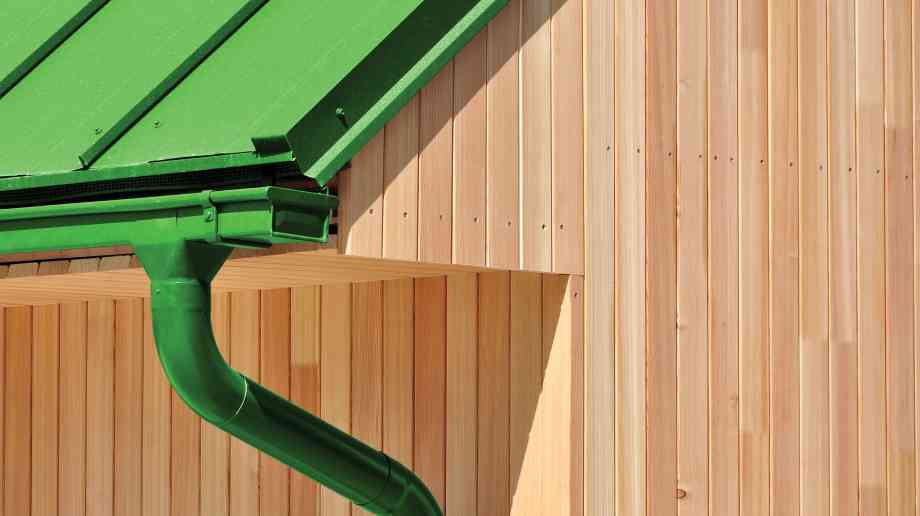Sue Robb of 4Children talks to Julie Laughton and Alison Britton from the Department for Education about the role of childminders in delivering the 30 hours free entitlement.

Promoting the sustainable building sector
The Greenbuild Expo takes place on 10- 11 November at Manchester Central, and features seminars with key advice for the construction industry on making buildings more efficient.
Reducing our buildings’ impact on the environment is at the heart of Greenbuild Expo, a free conference and exhibition taking place in Manchester Central on 10-11 November. As well as guidance on creating low-energy buildings, visitors to the event will also have access to expert advice on renewable energy, energy efficiency, green retrofit and much more.
On top of the free seminar programme of over 100 free sessions, there will also be an exhibition featuring some of the industry’s latest green innovations and energy-saving solutions. The Department for Energy and Climate Change (DECC) will be holding its RHI roadshow at Greenbuild Expo and will be also be presenting on how the domestic RHI and the Green Deal will work together to ensure that all participants will be able to benefit from having a smarter, warmer home.
A popular feature returning to Greenbuild Expo for 2015 is Ignition, the UK’s only woodfuel event and biomass heating expo. With a dedicated seminar programme and exhibition area, Ignition15 will include advice on heat meters and using biomass for district energy schemes.
Future Cities Zone
In association with Future Cities Catapult, this main feature at the show in 2015 looks at what our cities and buildings could be like in the future. It combines a 110sqm interactive stand and two future cities debates on the central stage. It aims to inspire people within the built environment to look at things differently.
A discussion, learning and realisation experience, this feature of the show will highlight the real challenges our cities face and that some solutions in part may already exist. Collectively this feature will help devise a way to make sure there is joined up thinking in the way that buildings perform in terms of energy and general running but also the roles they perform in the social arena and binding together the fabric of a city.
Our cities will become larger as the population migrates to areas of prosperity. The resources therefore in terms of energy, water and space will all be stretched.
What we do now – when it comes to how we heat and light our buildings – may not be what we do in the future. It’s difficult to predict whether we’ll be using renewable energy, coal, biofuel, gas, fuel cells or some new form of energy generation but we will need to manage what we use and when we use it better. So how does that look for a city?
What will be the solution for energy? At times our creaking network comes close to falling over. Turning down power consumption in some areas, adding new sources of energy through emergency generation at peak times are all being made possible through Smart grid, and smart building technology but what lies ahead for energy flexibility?
What will be the demand on water? For instance, only around 15 per cent of water delivered to homes is used to drink, yet it could all be drunk. We flush toilets, clean cars and water gardens with drinking water, will this resource be scarce in the future and would people in the future look at us now and think we are crazy?
Population increases and our cities having to expand, what can we do in the space we have? We can’t really spread out further, so building up or down maybe the answer and we need to consider the flexibility of a buildings use. We may need more office space now, but would it have been predicted 25 years ago that many would be able to work from home? Will that trend continue and if so what do we do with all these office blocks.
Security will play an increasingly important role in the future. The design of buildings and how they connect with others, both physically and through technology, could become the way crime is detected and prevented. Intelligent buildings with discrete scanning and identification capabilities are inevitable to track individuals who are not so welcome. They will also be able to help building users and visitors through mobile phone or other identifying technology and direct and welcome you to your destination or evacuate in emergencies.
These are just some of the things that will be addressed in the future zone. It’s all about flexibility and looking at intelligent buildings in terms of all services so energy, water, fire, security, communications and so on that help create enjoyable safe and healthy living and work spaces.
Buildings & Energy Efficiency
Returning for its second year, Buildings & Energy Efficiency (B&EE) is aimed at the commercial buildings sector. B&EE will run alongside Greenbuild Expo and has been designed to highlight the technological developments in building and refurbishment methods when it comes to energy efficiency. Encouraging businesses and property owners to save some of the reported £1.6 billion wasted on energy bills each year it will also cover ESOS and new legislation for energy performance of buildings.
Key industry figures will discuss the changing face of energy efficiency as collectively businesses in the UK are currently missing out on an estimated saving of £1.6 billion each year. Take a look at the up and coming ESOS legislation, BIM, building performance, integrating renewables, energy generation, the role that behavioural change plays in energy reduction, BREEAM plus much more.
The Buildings & Energy Efficiency Awards reward the best performing buildings in the UK. The Awards area, will highlight the shortlisted finalists, and the Buildings & Energy Efficiency Awards Gala Dinner takes place on the evening of the first day.
Day One Conference Programme
On the first day of the Expo, 10 November, The Red Room will be hosting seminars on: ‘Passivhaus for new-build residential’; ‘Integrating low-energy refurb’; ‘Measurement of Energy Savings Measures in Buildings’; ‘Overheating in Homes’; and ‘City Energy Apps: Mapping our Future’.
The Passivhaus seminar, jointly conducted by Mark Siddal of Leap and Helen Brown of Encraft, highlights the role that Passivhaus has to play in housebuilding in the UK. Taking place at 10:00, the seminar will end with a 10-minute opportunity for questions. Following on from this at 11:00, The National Energy Foundation’s (NEF) Principal Energy Specialist, Luke Smith, discusses intergrating low-energy refurbishment in the social housing sector with everyday maintenance.
Additionally, Richard Fitton from Salford University will present the latest results from the unique Energy House at the University of Salford. This test facility tests all manner of energy saving technologies from insulation to boiler controls. The latest findings will be presented, and also the innovative methods that are being developed to measure the energy performance of homes.
At 14:00, ‘Overheating in homes’ will be presented by Nicola O’Connor from the Zero Carbon Hub. There is evidence that overheating is already happening in certain types of homes, and concern is rising in the construction sector that it will become more prevalent in the future. The Zero Carbon Hub (along with by industry and government) has gathered together the latest evidence on this issue and made recommendations on what the sector needs to do to be more prepared. O’Connor will present a detailed analysis of what can be done to prevent this escalating problem.
The Red Room Day One Conference Programme is completed by Ruth Kerigan, R&D Director of IES, presenting on ‘City Energy Apps: Mapping our Future’. As part of the £24 million project funded by the Technology Strategy Board, IES created an Energy App for Glasgow Future Cities. In this session, Kerrigan will look at the ideas and technology behind it, its development, aims and where this kind of technology could take us in the future.
Running alongside The Red Room is an alternative seminar programme which will take place in The Purple Room. Discussions on Day One will include: ‘Environmental Assessments’; ‘Housing Association Performance Analysis’; ‘Retrofit at Scale’; and the BRE ’Home Quality Mark’.
Starting at 10:15, the ‘Environmental Assessments’ seminar, led by GreenBuild Consult’s Gareth Davies, will focus on how to make the process of Environmental Assessment easier for developers. Immediately afterwards, at 11:15, SHIFT will analyse the sustainability performance of housing associations from 2012 to 2014.
In ’Retrofit at Scale’, taking place at 12:15, PRP and the Institute for Sustainability will present a 40 minute workshop discussing their solution for ‘at scale’ social housing retrofit delivery which is currently being trialled with funding from Innovate UK. The session will include presentations covering the technical challenges and solutions; performance monitoring and resident liaison; on site delivery and supply chain integration. This will be followed by an audience Q&A session.
The ‘Home Quality Mark’, led by BRE’s Gwyn Roberts, is the new standard from BRE designed to put the consumer at the heart of quality, sustainable homes. It provides the householder with indicators of energy, water, health and well‐being and other performance issues in a simple, digestible format. It is also designed to allow quality housebuilders to differentiate a better product. The development of the Home Quality Mark has been supported by a number of leading private developers together with the social housing sector.
Day Two Conference Programme
Once again, GreenBuild Expo 2015 will include high quality, expert driven conference seminars on Day Two of the event. Highlights on the 11 November include: The Zero Carbon Hub investigating the route causes of the Performance Gap in their seminar ‘Building Performance Evaluation’ (The Red Room, 10:00); ‘Can refurbishment deliver energy efficient buildings?’, by the Green Gauge Trust’s Liz Reason (The Red Room, 11:00); ‘Passivhaus – is it really deliverable?’, a seminar on how local authorities and housing authorities can deliver high quality passivhaus homes (The Red Room, 15:00).
In The Purple Room at 10:15, Willmot Dixon Energy Services’ Robert Hughes looks at how to get successful, quality energy efficiency schemes off the ground in his seminar ‘Life in a Post-Eco World’. Later in the day (12:15), Oliver Heath discusses the emerging science of Biophilic Design, before Mark Atherton from Manchester City Council discusses the route forward for lowering Manchester’s carbon footprint in his seminar ‘Decarbonising Greater Manchester’.
Closing Day Two of the Expo, The Sustainable Energy Association discusses the road ahead for the Renewable Heat Incentive.
GreenBuild Expo 2015, Manchester Central, 10-11 November, 9.30am – 4.00pm
Further information
greenbuildexpo.co.uk
Company Focus
BLE Lighting & Power Ltd, a leader in cutting-edge lighting and power solutions, is proud to introduce BLE Connect, a groundbreaking Fully Automated Emergency Lighting System designed to simplify the labour intensive maintenance of emergency lighting across multiple facilities.
Event Diary
UKREiiF has quickly become a must-attend in the industry calendar for Government departments and local authorities.
The multi-award-winning UK Construction Week (UKCW), is the UK’s biggest trade event for the built environment that connects the whole supply chain to be the catalyst for growth and positive change in the industry.
Supplier Profiles
Geo Energy
At GeoEnergy Design, we're on a mission to disrupt the traditional way heating and cooling ha
Latest Features
Professor Harith Alani, director of the Knowledge Management Institute at the Open University explains how AI can be used for good and bad.
Alex Lawrence, head of health & social care, techUK sets out techUK’s Five Point Plan for CareTech.












